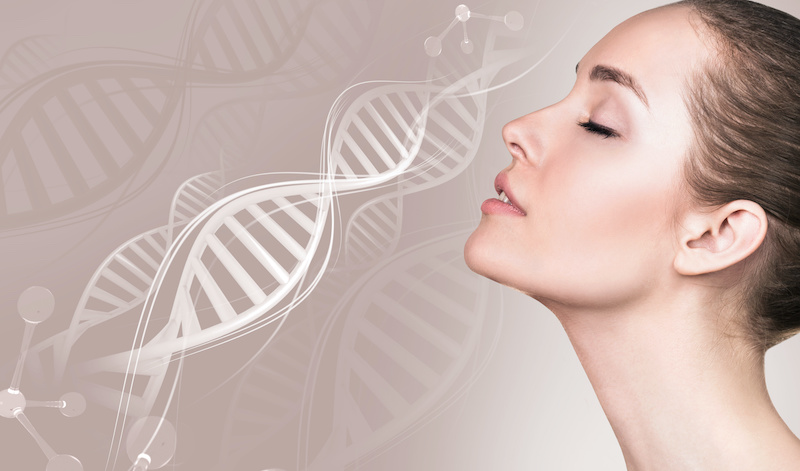How Genetics Affects Your Skin

How Genetics Impacts Our Skin
Today we’re looking at the impact that genetics has on our skin. As we all know, there are thousands of products out there that supposedly help us. As an example, the Anti-aging market is already worth an estimated $50 billion and is set to grow even further. Although some products can help it is more likely that our DNA will have an impact on our skin than any product ever will. So how exactly does our genetics impact us?
Try our FREE artificial intelligence (AI) search engine and get peace of mind
Skin Health Genetics
Genetics can play a major and minor role in the fight for healthier skin. This is because just about everything that affects our skin can be put down to genetics in some way. From wrinkles to varicose veins and acne, genetics plays its part and this explains why some of us might experience these issues earlier in life and others later. By better understanding our genetics we can get closer to understanding what works for us and what doesn’t.
Why Does Genetics Impact Skin?
We know that genetics is a key part of our make-up but how and why does it impact our skin? As an example lets take a look at skin pigmentation. This in itself is a complex ‘phenotype’ because there is significant variation between human populations.
One theory behind differences in skin pigmentation is based on evidence of natural selection as humans began to migrate. Essentially, depending on the sunlight in a particular region, our bodies have adapted to protect from ultraviolet radiation. Although there are a variety of reasons for our differences in skin pigmentation: how we protect our skin and synthesise Vitamin D appears to be an important factor.
This is how genetics can impact our skin so significantly. Vitamin D production depends on the concentration of melanin in the skin. The more melanin there is, the less efficient the body is at converting ultraviolet rays into Vitamin D. Those with darker skin tones will have more melanin and will therefore be less efficient at producing Vitamin D. Melanin, however, plays a vital role in absorbing and scattering ultraviolet rays in order to protect the skin from burning. This is very important in regions with more sun.
We can look at it as a trade-off. Lighter skin pigmentation is more efficient at producing Vitamin D. However, it is much more susceptible to burning (skin damage) and skin cancers.
We will leave the detailed reasons for changing skin pigmentation to historians and geneticists. However, in brief, it is believed to be the cause of our ancestors seeking new territories. As humans explored, some of these territories had (and still have) a significantly reduced duration of sunlight, hence the need for more sun sensitive skin. Our bodies adapted through natural selection, as those with lighter skin pigmentation thrived in regions with less sun, but suffered in regions with more.
Try our FREE artificial intelligence (AI) search engine and get peace of mind
Genetic Skin Disorders
Not only does our genetic make-up impact the skin of each and every one of us. There are also many skin disorders that are caused by genetics. Several skin disorders are caused entirely by inherited factors such as:
- Albinism
- Epidermolysis Bullosa
- Itchthyosis
- Nuerofibromatosis
Although these diseases are due to genetics. Most skin disorders are due to a combination of both genetics and environmental factors. A family history of skin cancer can increase your risk of skin cancer but other factors such as excessive sun exposure and fair skin will also play its part.
Understanding Your Genetics
We hope that we have a made clear in this post that genetics is key to our skin. With that in mind, it can be helpful for us to truly understand our genetic make-up. This can help us make better decisions for our skin and better protect our skin for the future.
We’ve done our research and If you’re curious then we suggest taking a look at Genomelink. Their service allows you to upload your DNA data obtained from major DNA testing companies like 23andMe and AncestryDNA. It can connect your data with the growing body of genomics science and help you discover more about your skin conditions and how they are influenced by DNA. Also, you can find more options in their blog post about Best DNA Upload Sites. Give it a try we’d love to hear your thoughts!
Try our FREE artificial intelligence (AI) search engine and get peace of mind
Ask a Dermatologist
Anonymous, fast and secure!

The Specialist doctor from the University Hospital in Gothenburg, alumnus UC Berkeley. My doctoral dissertation is about Digital Health and I have published 5 scientific articles in teledermatology and artificial intelligence and others.

